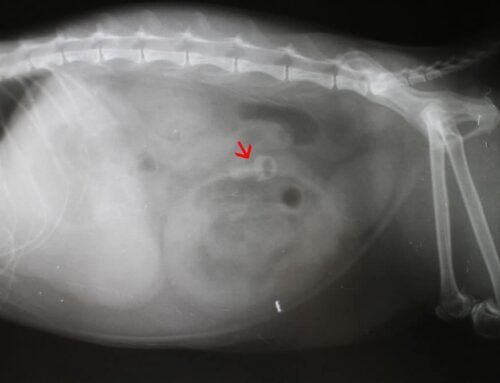From Itching to Relief: Your Plan for Allergy Season Success
When your pet starts scratching relentlessly, developing ear infections, or rubbing their face on the carpet every spring or fall, it’s easy to wonder: is this just a passing issue—or something more persistent?
At Sonoran Sky Pet Hospital in Mesa, Arizona, we take seasonal allergies seriously. Allergies can significantly affect your pet’s comfort and health—and when left unaddressed, they often worsen over time. Our goal is to help you understand what’s happening, get a clear diagnosis, and design a sustainable treatment plan grounded in good medicine and best practices.
Why Accurate Diagnosis Matters
Seasonal allergies—also known as atopic dermatitis—aren’t just a nuisance. They’re a chronic, inflammatory skin condition that can lead to infections, behavioral changes, and a diminished quality of life. That’s why we prioritize thorough diagnostic workups to distinguish seasonal allergies from other conditions like food allergies, parasitic infections, or skin disorders.
Our Approach to Diagnosis
At Sonoran Sky, we begin with a comprehensive physical exam to evaluate your pet’s skin, ears, and overall history. Based on our findings, we may recommend:
- Cytology – Microscopic evaluation of skin or ear samples to detect bacterial or yeast infections
- Skin scrapings – To rule out mange or other parasites
- Allergy testing – Either:
- Intradermal testing (the gold standard)
- Serum IgE testing (less invasive, useful for identifying environmental triggers)
- Food elimination trials, if food allergies are suspected
This investigative process allows us to treat precisely—not just symptomatically.
Recognizing the Signs: What Allergies Look Like in Pets
Unlike humans, pets with seasonal allergies usually present with skin and ear symptoms, not just sneezing or watery eyes. Here’s what to watch for:
- Excessive itching (pruritus) — especially feet, face, and belly
- Red or inflamed skin, sometimes with hair loss or thickening
- Recurring ear infections — head shaking, odor, or discharge
- Hives or raised bumps
- Watery eyes or nasal discharge (less common)
- Behavioral changes — restlessness, irritability, or sleep disruption
Treatment Best Practices: Medical Strategies That Work
There’s no one-size-fits-all solution for atopic dermatitis—but there are proven treatment protocols that can make a profound difference.
First-Line Therapies
- Antihistamines – Mild relief for some pets, though often less effective on their own
- Topical treatments – Medicated shampoos, sprays, or mousses to calm skin
Advanced Medical Options
- Immunomodulatory medications like:
- Apoquel® (oclacitinib) – Blocks itch and inflammation
- Cytopoint® – A biologic injection targeting IL-31 (the “itch” cytokine)
- Cyclosporine (Atopica®) – Effective in more severe or refractory cases
Allergen-Specific Immunotherapy
The only treatment aimed at long-term immune system modulation, allergy shots (or oral drops) are created based on your pet’s test results and can reduce reliance on medications over time.
Managing Secondary Infections
Antibiotics or antifungals may be needed when self-trauma leads to open wounds, hot spots, or persistent ear issues.
Nutritional Support
Omega-3 fatty acids and skin-supportive diets can reduce inflammation and improve barrier function. Read: Dermatitis and Nutrition – OVC Pet Nutrition
Why Long-Term Management Is Key
Seasonal allergies are chronic by nature. Even if symptoms subside between flare-ups, maintenance care is crucial to prevent long-term damage such as:
- Chronic ear disease
- Lichenification (skin thickening)
- Secondary food sensitivities
- Emotional distress in both pets and owners
Good management isn’t about masking symptoms—it’s about building a proactive, responsive care plan.
Daily Strategies for Allergy-Prone Pets
In addition to medical treatment, at-home care can make a big difference:
- Wipe paws after outdoor walks to remove pollen
- Bathe weekly with veterinary-approved shampoos
- Vacuum and wash bedding frequently
- Use HEPA filters or air purifiers indoors
- Avoid outdoor time during high pollen periods
Grooming also plays a vital role: Why Pets Need Regular Grooming – ASPCA
And don’t forget: Year-round parasite prevention is essential. Flea bites are a leading allergy trigger.
How to Prepare for Your Allergy Appointment
To help us give you the clearest picture possible, bring:
- A symptom log (dates, locations, and patterns)
- Photos or videos of flare-ups
- A list of current medications, supplements, and diet
- Any past allergy test results, if available
We’ll walk you through all your options and answer any questions like:
- “Is this likely environmental or food-related?”
- “Should we do testing now, or start with symptomatic relief?”
- “What are the risks of long-term medication?”
- “How often should we recheck?”

Your Partner in Evidence-Based Allergy Care
At Sonoran Sky Pet Hospital, our mission is to combine medical excellence with compassionate support—especially when managing long-term conditions like allergies. Whether your pet is newly showing signs or you’ve been trying to manage this for years, we’re ready to help.
Contact us with questions to discuss next steps. Together, we’ll create a smart, sustainable plan that keeps your pet comfortable, happy, and healthy year-round.









Leave A Comment